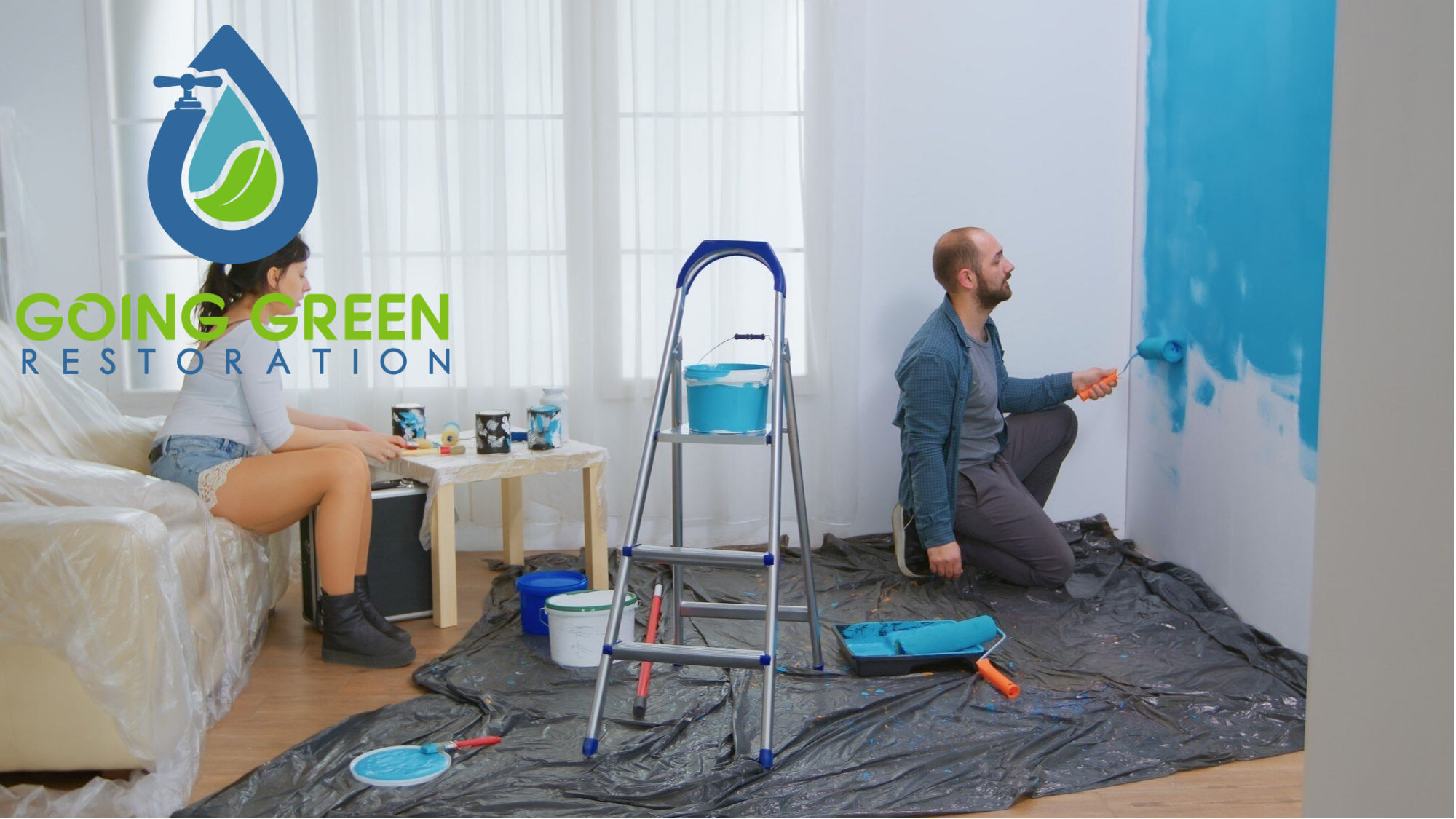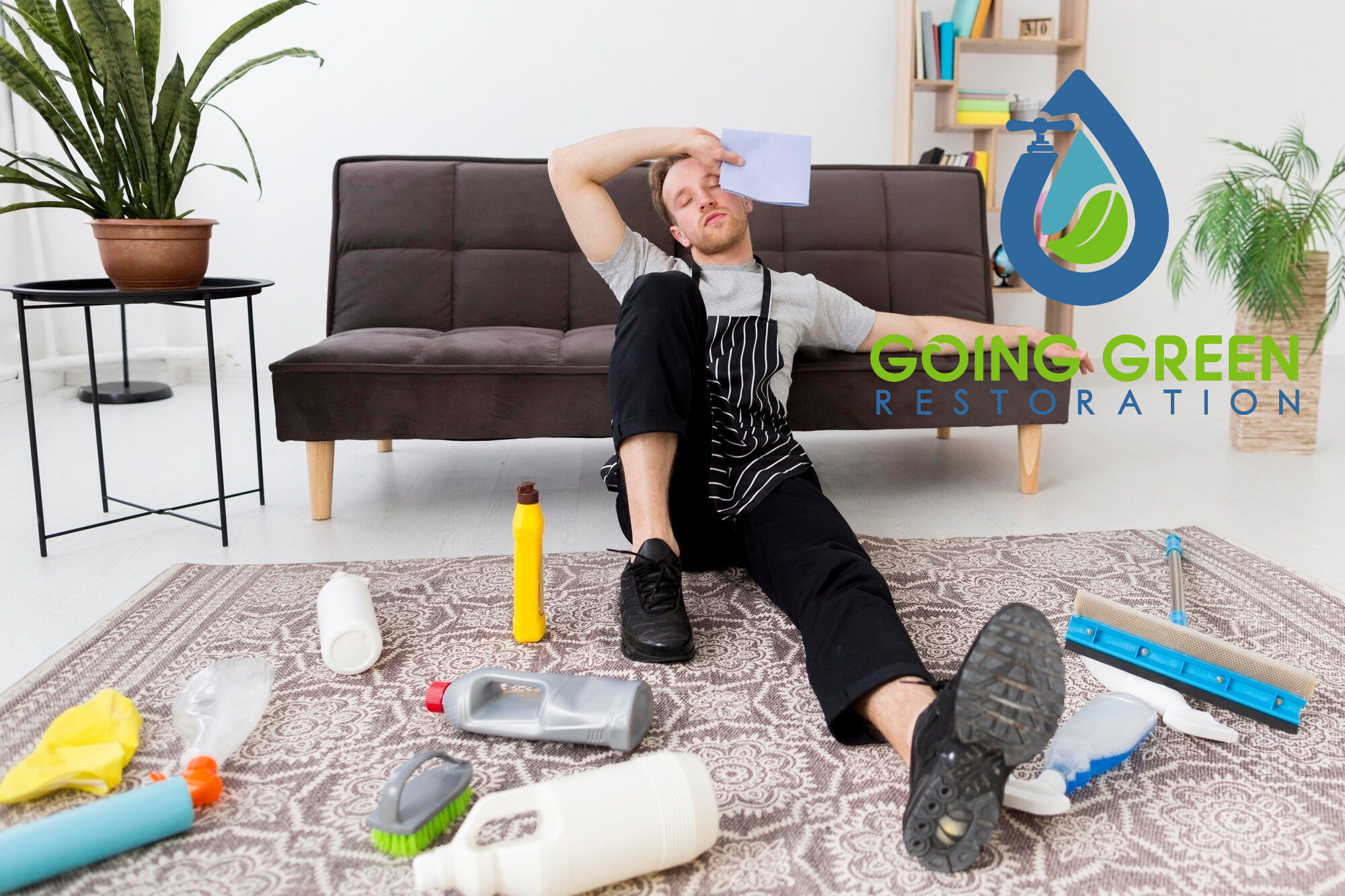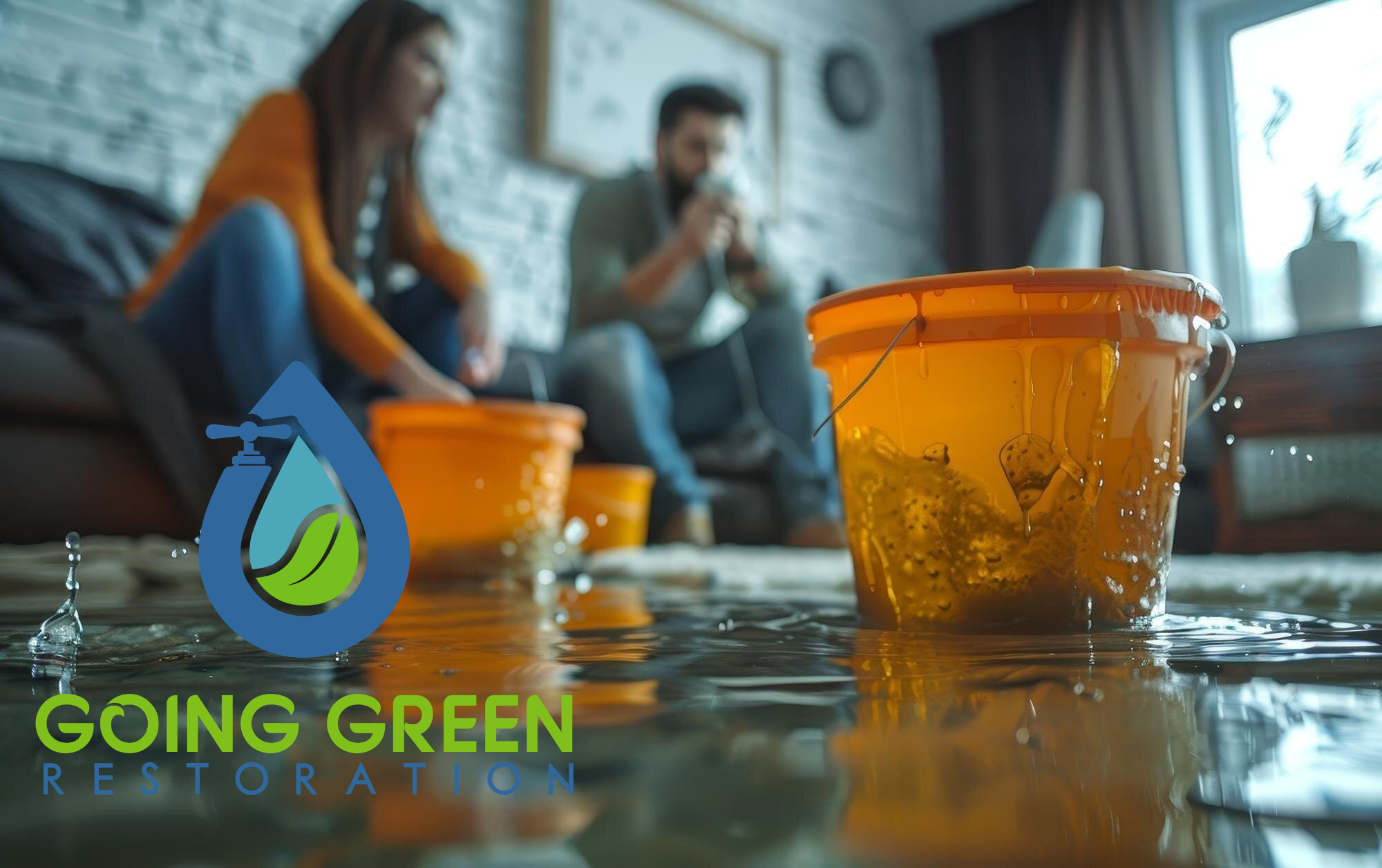The Dangers of Delaying Water Damage Repairs in Your Orlando Home
Water damage is every homeowner’s nightmare. Whether caused by a burst pipe, heavy rain, or a leaking roof, water intrusion can lead to severe structural damage, mold growth, and costly repairs. In Orlando, where storms and high humidity are common, delaying water damage restoration can escalate the problem quickly, turning a minor issue into a full-blown disaster.
In this guide, we’ll explore the dangers of putting off Orlando Water Damage Restoration and what homeowners can do to protect their properties.
The Immediate Consequences of Water Damage
Water damage isn’t just about a wet carpet or a stained ceiling. The longer water sits, the worse the damage becomes. Within minutes, water starts to seep into floors, walls, and furniture. Here’s what happens when you delay repairs:
1. Structural Damage Increases
Water weakens wood, drywall, and concrete. If left untreated, it can cause warping, swelling, and even rotting. In severe cases, water damage can compromise the structural integrity of your home, leading to costly repairs or even collapse.
2. Mold Growth Becomes a Serious Threat
Mold thrives in damp environments, and in Orlando’s humid climate, it can start growing within 24-48 hours. Once mold spreads, it can cause serious health issues, especially for those with respiratory conditions. Immediate Mold Removal Orlando is crucial to prevent long-term health risks.
3. Electrical Hazards Develop
Water and electricity don’t mix. Water damage can lead to electrical short circuits, increasing the risk of fires or electrocution. If you suspect water damage near electrical outlets or wiring, turn off power to the affected area and seek professional help.
4. Contaminated Water Can Pose Health Risks
Not all water damage is clean water from a broken pipe. Flooding can bring in contaminated water filled with bacteria, sewage, and other hazardous materials. Delaying clean-up increases the risk of exposure to harmful pathogens.

The Long-Term Impact of Untreated Water Damage
Ignoring water damage today could lead to severe and costly problems in the future.
1. Higher Repair Costs
What might have been a simple fix—like drying out a small leak—can become a massive repair project if ignored. Replacing drywall, flooring, and insulation is far more expensive than addressing the problem early on with Water Damage Repair Orlando.
2. Property Value Declines
A history of water damage and mold problems can significantly decrease your home’s resale value. Buyers will be hesitant to purchase a property with unresolved water issues.
3. Pest Infestation
Standing water and damp conditions attract pests such as termites, cockroaches, and rodents. These pests can cause additional damage to your home and pose health risks to your family.
Common Causes of Water Damage in Orlando Homes
Understanding the most common causes of water damage can help you take preventive measures:
1. Heavy Rains and Storms
Orlando is no stranger to torrential downpours and hurricanes. Poor drainage, clogged gutters, and aging roofs make homes vulnerable to leaks and flooding.
2. Plumbing Issues
Burst pipes, leaking faucets, and water heater malfunctions are common culprits of water damage. Regular plumbing inspections can help detect problems before they escalate.
3. HVAC System Leaks
Air conditioning units, essential in Florida’s hot climate, can cause water damage if the drain lines become clogged. Regular maintenance prevents overflow and leaks.
4. Appliance Malfunctions
Dishwashers, washing machines, and refrigerators with water supply lines can leak and cause significant damage over time if unnoticed.
Steps to Take After Water Damage Occurs
If you experience water damage, acting quickly can prevent further destruction.
1. Stop the Water Source
If the damage is due to a plumbing issue, turn off the main water supply immediately. If flooding is from an external source, try to divert water away from your home.
2. Call a Professional Restoration Team
A trusted 24/7 Emergency Restoration Orlando service can respond quickly, extract water, and begin the drying process to prevent mold growth.
3. Remove Excess Water and Moisture
Use mops, towels, and wet/dry vacuums to remove standing water. Open windows and run fans to improve ventilation. However, professional drying services ensure complete moisture removal.
4. Inspect for Mold and Structural Damage
If water has been sitting for more than a day, mold may have already started forming. Orlando Emergency Mold Remediation experts can assess the situation and prevent further spread.
5. Document Damage for Insurance Claims
Take photos and videos of affected areas before making repairs. This documentation will be essential when filing an insurance claim.
Preventing Water Damage in Your Home
The best way to deal with water damage is to prevent it from happening in the first place.
1. Regular Home Inspections
Check your plumbing, roof, and foundation for potential leaks or weaknesses. Regular maintenance can catch small issues before they turn into major problems.
2. Install a Sump Pump
A sump pump can help prevent basement flooding by pumping excess water away from your home. Regular testing and maintenance ensure it works when needed.
3. Keep Gutters and Downspouts Clear
Clogged gutters can cause water to overflow and seep into your home’s foundation. Clean them regularly, especially before hurricane season.
4. Use Water Leak Detection Devices
Smart water leak detectors can alert you to leaks before they cause significant damage. Consider installing these devices near appliances and plumbing fixtures.
Helpful Resources for Water Damage Prevention
For more information on protecting your home from water damage, check out these authoritative resources:
- FEMA – Homeowner’s Guide to Flood Prevention: https://www.fema.gov/floods
- EPA – Mold Prevention and Indoor Air Quality: https://www.epa.gov/mold
- National Weather Service – Flood Safety and Alerts: https://www.weather.gov/safety/flood

Frequently Asked Questions
1. How soon should I address water damage?
Immediately! Water damage doesn’t wait, and neither should you. Within just a few hours, moisture can start seeping into walls, flooring, and furniture, weakening materials and creating the perfect environment for mold. If left untreated for 24–48 hours, mold spores can begin to spread, leading to potential health risks and expensive remediation costs. The sooner you act, the better your chances of minimizing damage and keeping repair costs low.
2. Can I clean up water damage myself?
It depends on the severity. If you have a minor spill or a small leak that you caught quickly, you can likely handle it yourself by drying the area thoroughly with fans and dehumidifiers. However, for larger water intrusions—like from a burst pipe, storm flooding, or backed-up drains—professional Orlando Water Clean Up & Restoration is recommended. Professionals have the tools and expertise to ensure that moisture is completely removed, preventing hidden mold growth and structural damage.
3. How do I know if my home has hidden water damage?
Water damage isn’t always obvious. Some telltale signs of hidden water damage include:
- A musty or damp odor, especially in basements or under sinks
- Peeling paint or wallpaper
- Warped or buckling floors
- Discoloration on walls or ceilings
- An unexplained increase in your water bill (which could indicate a hidden leak)
If you suspect water damage but can’t find the source, a professional Orlando Restoration Company can conduct a moisture inspection to detect hidden problems before they escalate.
4. Does homeowners insurance cover water damage?
Insurance coverage for water damage depends on the source of the problem. Most policies cover sudden and accidental incidents, such as a burst pipe or an overflowing washing machine. However, gradual leaks, neglect, and flood damage (from external sources like heavy rain or hurricanes) are often not covered unless you have additional flood insurance. To be safe, review your policy and consider speaking with your insurance provider about what’s included in your coverage.
5. How can I prevent mold after water damage?
Mold can begin growing in as little as 24 hours, so quick action is essential. Here’s what you can do:
- Immediately dry affected areas using fans and dehumidifiers.
- Remove soaked carpets, furniture, and other porous materials if they cannot be thoroughly dried.
- Disinfect surfaces with antimicrobial treatments to prevent mold growth.
- Call Orlando Residential Mold Remediation if you suspect mold has already started to grow.
6. What should I do if my basement floods?
A flooded basement can be overwhelming, but staying calm and taking the right steps can minimize damage:
- If it’s safe, turn off the power to the affected area to prevent electrical hazards.
- Stop the water source if possible (such as shutting off the main water valve).
- Remove excess water with a wet/dry vacuum, sump pump, or towels.
- Call a professional 24/7 Emergency Restoration Orlando team to extract water, dry the area, and assess structural damage.
7. How long does it take to dry out water damage?
The drying process depends on several factors, including the extent of the damage, the type of materials affected, and the humidity level. On average, it takes 3–5 days for a professional team to completely dry out a water-damaged area using high-powered fans, dehumidifiers, and moisture meters. However, if water has deeply penetrated walls and flooring, it could take longer. Acting fast reduces drying time and prevents secondary issues like mold.
8. Is water damage dangerous for my health?
Yes, water damage can pose serious health risks, especially if it leads to mold growth or involves contaminated water. Stagnant water can harbor bacteria, viruses, and fungi, increasing the risk of respiratory issues, infections, and allergies. If the water damage is from sewage backup or flooding, immediate professional cleanup is essential to eliminate hazardous contaminants.
9. What’s the difference between water damage and flood damage?
While both involve water intrusion, water damage typically refers to issues caused by internal sources (like broken pipes, roof leaks, or appliance malfunctions). Flood damage, on the other hand, results from natural disasters, such as hurricanes, heavy rainfall, or storm surges. The distinction is important for insurance purposes, as standard homeowners insurance often covers water damage but requires additional coverage for flood damage.
10. How can I prevent water damage in my home?
Preventing water damage is easier (and cheaper) than repairing it. Here are some proactive steps:
- Inspect your plumbing regularly for leaks, rust, or signs of wear.
- Maintain your roof and gutters to ensure proper drainage during storms.
- Install a sump pump with a battery backup to prevent basement flooding.
- Check your appliances (dishwasher, washing machine, water heater) for leaks and replace old hoses.
- Use smart leak detectors that alert you to water issues before they escalate.
By taking these precautions, you can significantly reduce the risk of water damage and costly repairs. If you do experience water damage, acting quickly and calling an expert Orlando Water Damage Restoration team can help you recover before the problem worsens.
Water damage is more than just an inconvenience—it can be a serious threat to your home’s structure, your belongings, and your health. A minor leak today can turn into a major catastrophe tomorrow if left unaddressed. Moisture seeps into walls, flooring, and even the foundation of your home, weakening materials and creating the perfect breeding ground for mold, bacteria, and pests. The longer you wait, the higher the risk of costly repairs and potential health hazards.
The True Cost of Delaying Water Damage Repairs
Many homeowners underestimate the impact of water damage, thinking it’s just a temporary problem that will dry out on its own. Unfortunately, this misconception often leads to more expensive and dangerous consequences.
- Escalating Repair Costs – What starts as a small leak could eventually require full drywall replacements, new flooring, or even structural reinforcements. Water-damaged wood can rot, leading to foundational instability. The longer you delay, the more expensive the restoration process becomes.
- Mold Growth – Mold begins forming within 24–48 hours of water exposure. Once mold takes hold, it spreads rapidly, affecting indoor air quality and leading to respiratory problems, allergies, and other health issues. Some molds, like black mold, can be particularly hazardous, requiring extensive Orlando Residential Mold Remediation services.
- Health Risks – Standing water and excessive moisture create an ideal environment for bacteria, mildew, and pests such as mosquitoes, termites, and rodents. Exposure to contaminated water from sewage backups or floodwaters can cause serious illnesses.
- Electrical Hazards – Water intrusion near electrical outlets or wiring poses a severe risk of electrocution and fire hazards. If you suspect water damage near electrical systems, turn off the power to the affected area and contact a professional immediately.
- Decreased Property Value – Homes with a history of unresolved water damage and mold problems are significantly harder to sell. Potential buyers may be wary of hidden damage, leading to lower offers or extensive negotiations.
Why Professional Water Damage Restoration Matters
Water damage restoration is not a DIY job. While homeowners may be able to handle minor spills, major water damage requires professional intervention. Trained specialists use advanced equipment such as industrial-grade dehumidifiers, moisture meters, and infrared cameras to detect hidden moisture pockets that could cause future problems.
A professional Orlando Restoration Company doesn’t just remove water; they ensure your home is completely dry, sanitized, and safe. They also help document damage for insurance claims, making the process smoother and ensuring you receive fair compensation for repairs.
Take Action Before It’s Too Late
The best way to protect your home is through immediate action. If you notice signs of water damage—such as damp walls, musty odors, peeling paint, or warped flooring—don’t ignore them. Call our 24/7 Emergency Restoration Orlando team immediately to assess and mitigate the damage before it worsens.
By staying proactive, addressing leaks quickly, and trusting experts for thorough restoration, you can protect your home, your belongings, and your family’s well-being. Don’t wait—act today to keep your home secure and ensure a safe, healthy environment for years to come!
Posted on Behalf of Going Green Restoration USA
